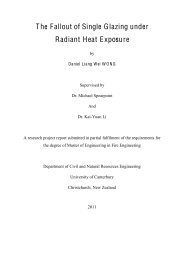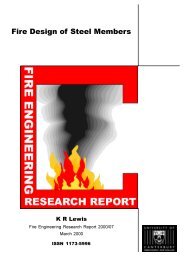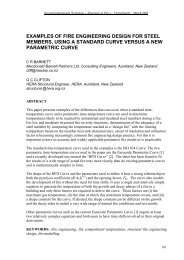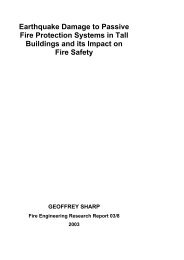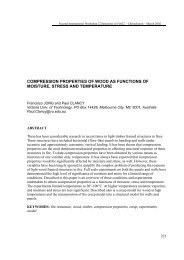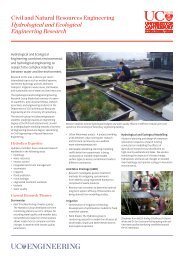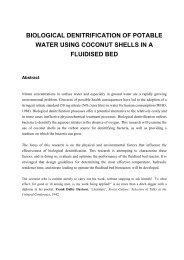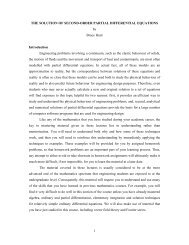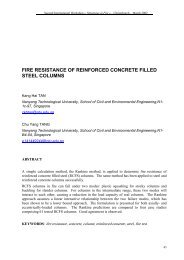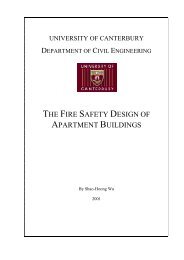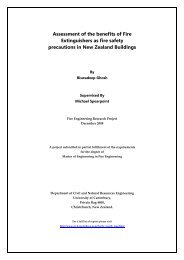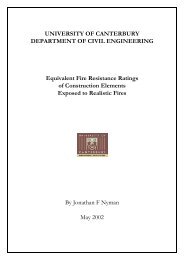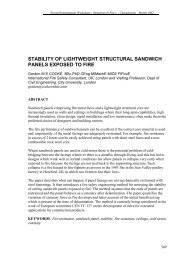University of Canterbury Department of Civil and Natural Resources ...
University of Canterbury Department of Civil and Natural Resources ...
University of Canterbury Department of Civil and Natural Resources ...
You also want an ePaper? Increase the reach of your titles
YUMPU automatically turns print PDFs into web optimized ePapers that Google loves.
<strong>University</strong> policies on safety can be found at:<br />
www.canterbury.ac.nz/hr/health_safety/specific_policies_<strong>and</strong>_procedures/policies_<br />
proced.shtml<br />
Information on hazards associated with chemicals can be found at:<br />
http://chemwatch.canterbury.ac.nz<br />
Advice on what to do in various emergencies:<br />
www.canterbury.ac.nz/hr/health_safety/emergency_plan/emergencies.shtml<br />
What to do in an Emergency or Serious Injury<br />
• If external help is needed call the Emergency Services by dialling 111 <strong>and</strong><br />
ask for Police, Fire Service or Ambulance.<br />
• Contact the <strong>University</strong> Security Centre <strong>and</strong> inform them <strong>of</strong> the situation. On<br />
campus dial 6111.<br />
Serious injury<br />
In a medical emergency or serious injury:<br />
1. Call the Ambulance Service by dialing 111.<br />
2. If a heart attack is suspected ALSO call the <strong>University</strong> Cardiac Arrest<br />
Number 7777 IMMEDIATELY <strong>and</strong> request defibrillation.<br />
3. Give first aid until the arrival <strong>of</strong> an ambulance or qualified medical expert.<br />
People who hold first aid certificates are listed in the front <strong>of</strong> this manual<br />
<strong>and</strong> in the <strong>University</strong> Telephone Directory.<br />
Fire<br />
If you discover a fire:<br />
1. Raise the alarm immediately by operating the nearest fire alarm.<br />
2. Notify the Fire Service by calling 111.<br />
3. Close down potentially dangerous processes or machinery if possible to do<br />
so safely <strong>and</strong> with no delay. Leave lights on.<br />
4. Leave immediately by the nearest escape route.<br />
5. Report to your designated assembly area.<br />
Earthquake<br />
1. It is usually safer to remain inside a building in all but a major earthquake.<br />
Move away from windows that may break or anything that may fall. Take<br />
shelter under solid furniture or in a doorway.<br />
2. Do not start evacuation until major shaking has stopped. When the<br />
evacuation alarm sounds, follow the normal evacuation procedure.<br />
3. Be aware <strong>of</strong> possible after shocks.<br />
46<br />
`



